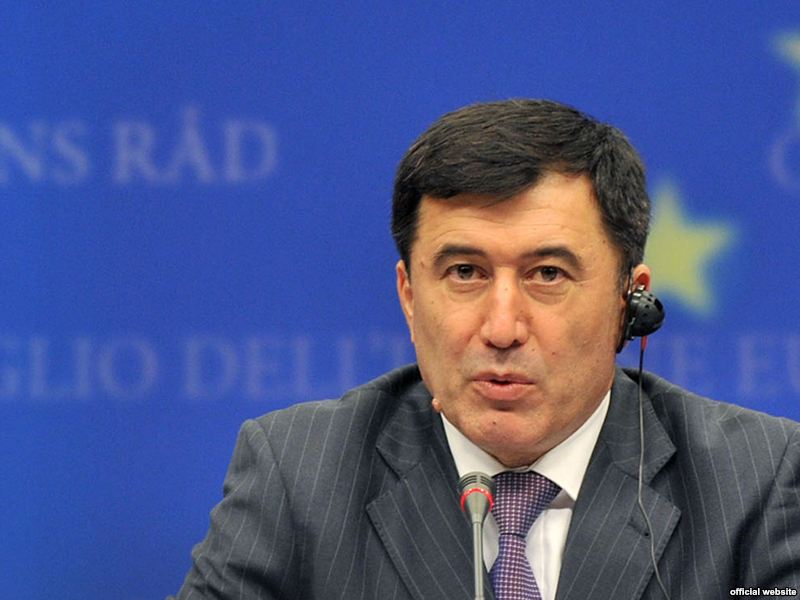
Uzbekistan Considers the Strategic Implications of NATO’s Drawdown In Afghanistan
Publication: Eurasia Daily Monitor Volume: 8 Issue: 210
By:

US President Barack Obama has set 2014 as a deadline for the withdrawal of coalition forces from Afghanistan. The future of the country and its neighbors following the withdrawal by the International Security Assistance Force (ISAF) is unclear, even though the US government pledges its continued support. Anxiety about militancy in the country dominates wider concerns in the region. In the absence of large numbers of US and allied forces, the potential for militant activity to spread beyond Afghanistan affects all neighboring countries. Even if the Afghan security forces are able to control the country, a deterioration of security conditions can be expected to accompany any anticipated withdrawal of US troops.
Uzbekistan is one of the neighboring countries worried about the planned 2014 ISAF troop withdrawal from Afghanistan. The Uzbek government sees little prospect that the current Afghan government and security forces will be able to maintain stability or even survive without a significant foreign troop presence. Nor does it rely upon its Central Asian neighbors to prevent any post-2014 spreading of insurgency. Nonetheless, Uzbekistan has little interest in collective security organizations with its neighbors, which might help confront security threats emanating from its troubled neighbor and sees little practical purpose in pursuing such options (Central Asia-Caucasus Analyst, June 17, 2009).
However, Tashkent doubts that the Afghan-Tajik and Tajik-Kyrgyz borders will be well protected, which are in addition vulnerable due to lengthy borders, un-demarcated parts, poor security forces and harsh terrain, through which fundamentalists have crossed in the past and caused security and military clashes in the region such as the Rasht Valley in 2010 and the regional events of 1999 (Central Asia-Caucasus Analyst, October 12). Therefore, Uzbekistan relies on its own national army and security forces, which are strong and have enough training and weapons reserves to protect its national border with Afghanistan.
At the same time, the way Uzbekistan proposes to deal with the Afghan problem is contradictory. In his OSCE summit speech in December 2010, the then Uzbek Foreign Minister Vladimir Norov, announced that “Uzbekistan does not consider it possible for itself to participate in the implementation of the programs and projects adopted on a collective or bloc basis” (Speech by Head of Delegation, Minister of Foreign Affairs of Uzbekistan, Vladimir Norov at the OSCE Summit, www.mfa.uz. January 1).
However, the “6+3” initiative that Uzbekistan is promoting is a collective initiative to approach the Afghan problem, which the US and the EU do not favor because it excludes the Afghanistan government itself. For Uzbekistan, any project that includes Afghanistan should be at a bilateral level, and that was reiterated by Norov in the same speech “Uzbekistan builds and shall build its relations with its close neighbor – Afghanistan – only on a bilateral basis, proceeding from mutual national interests” (Speech by Head of Delegation, Minister of Foreign Affairs of Uzbekistan, Vladimir Norov at the OSCE Summit, www.mfa.uz. January 1).
This statement contains an important message about Uzbekistan’s stance toward Afghanistan: as far as Afghanistan is stable, Tashkent will choose to deal with the country bilaterally. But if the security situation in Afghanistan deteriorates and descends into chaos, Uzbekistan will erect a security “wall” to protect itself from its troubled neighbor.
In the longer term, even after the 2014 deadline, the US and its allies will certainly maintain some sort of special-operations (counter terrorism), training, advising and intelligence presence in the country. Therefore, the idea that the US is not interested in having supply bases in Central Asia cannot be ruled out. The US and NATO may be more interested in gaining access to Uzbek territory than its neighbors, due to Uzbekistan’s superior military infrastructure (The Military Balance, 2010).
The main goal of the coalition forces currently and beyond 2014 is in sustaining at least what has been gained in Afghanistan so far since it has become clear that building and sustaining a Western model of democracy is impossible. With little support from the Afghan people, a weak and unpopular central government and little or no foreign ground troops in the country after 2014, a new period of instability will almost certainly become the norm. That is when the US and NATO will need to start increasingly to rely on Afghanistan’s neighbors to contain the threat and Uzbekistan can expect to begin to play a greater role.
Therefore, the US may start paying greater attention to sustaining stability and good relations with Uzbekistan, and Tashkent is aware of its growing strategic importance. Uzbekistan does not mind having strong relations with the US, as long as Washington desists from trying to impose its own view of Uzbekistan’s internal political dynamics. Uzbekistan will benefit from this partnership in particular, because the US is a strong ally, but it is distant enough not to pose a threat to Uzbekistan’s sovereignty.




